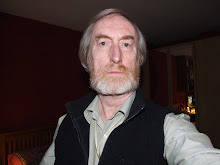I bought some audio books. Beaver Memorial Library was giving them away ($1-an-item). They had some splendid American Classics - Poe, London, and Waller (who he - ed? Well. he wrote The Bridges of You-Know_Where. This one is called "A Thousand Country Roads" so you can see my interest.). I like listening to Public Radio when I'm driving, but sometimes it's just too difficult to find stations, so when I saw these audio books being disposed of, I thought that an ideal solution. (Actually, the ideal solution is sattelite radio, but I don't have that)
When I got back to Rozzie, I immediately spotted a flaw in my plan: he's got no tape player. And no line-input to add a device. It occured to me that this may be why the library is getting rid of them. I will have to find a way round this. A visit to Best Buy (giant electrical equipment shop) might give me some ideas.
It turns out that the big shopping malls are south of Monaca, the part of this conurbation south of the Ohio. (That's not an incompetent spelling of "Monaco", by-the-way, it's short for Monacatootha, a great Iroquois chief.) I thought I might get something which would read tapes into a USB slot, but no such luck. The best they could come up with was a Sony Walkman. Can you believe that they're still available? That really has stood the test of time, hasn't it? For those of you worried about me driving with earphones on, I should tell you I've added a fancy self-powered loudspeaker which, despite being tiny, works very well.
I'm sure most of you are familiar with the workings of the Laws of Maximised Perversity, often referred to, colloquially, as "Murphy's", or "Sod's" Law. One should always attempt to minimise the number of things of uncertain outcome in any plan. So I viewed an offer from Cunard to book on the Queen Mary 2 in April next year as something that might need to wait the outcome of the Immigration Appeal.
But a quick look at availability showed that the first straight transatlantic crossing was already full; it wouldn't be long before the travel agents found the well-hidden last leg of the world cruise. So I booked my passage home. I'm now booked out of New York on 15th April 2010.
Have I resolved my Catch-22, or set it in stone? Will Immigration punish my presumption, or finally accept that this proves I'm going home?
Later that night, the motel was running a Halloween Dance. It had a good country and western band (well, "country rock", they called it), and lots of adults dressed up in some really neat costumes.
I adopted my by now familiar disguise of dedicated sobriety. As far as I could see, nobody else was in that costume.






















